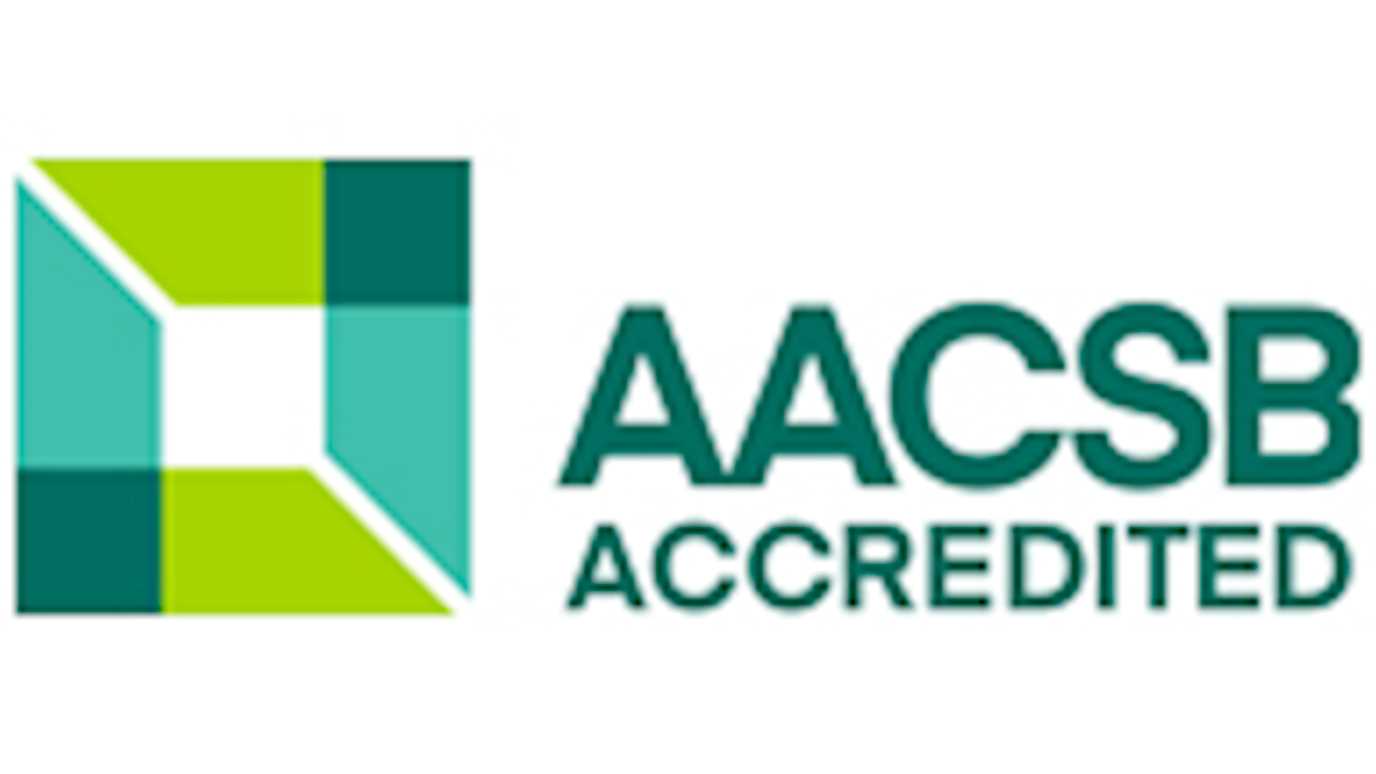Key information
Duration: 1 year full time
Institution code: R72
Campus: Egham
UK fees*: £13,200
International/EU fees**: £23,900
The course
Digital Business (MSc)
Digital Business is an exciting course at Royal Holloway. It is aimed at recent graduates, from any discipline, seeking to boost their employability in a digital economy, as well as professionals wanting to update their workplace knowledge and skills.
The course focuses on the knowledge and skills required to manage digital technologies in the development and delivery of business innovations. It will equip you with an in-depth understanding of how to integrate digital technologies such as mobile computing, social media, and data analytics tools to innovate business practices.
A key feature of the programme is the development of practical knowledge through industry connections and business case studies whilst providing a strong theoretical base on business management in the digital era.
On graduating you will have the ability to analyse business innovation opportunities and challenges and make well-informed tactical and strategic decisions. You will be confident in proposing and evaluating solutions to business problems by using data analytics skills, and be able to effectively communicate complex business information to both professional and non-specialist audiences.
As a student in the School of Business and Management you will join an intellectually stimulating, friendly and supportive research environment and, through working closely with our expert and experienced academic staff, you will be in a position to realise your full potential.
- Strong career prospects in a digital economy where the capacity to innovate and adapt is integral to employability.
- New and exciting opportunity to study cutting-edge topics such as Big Data, business intelligence, digital innovation, and social media. Coupled with exposure to highly sought-after skills in data analysis, data visualisation, and web analytics.
- Develop an effective network through external contacts with leading academics and senior corporate managers through seminars and guest lectures and work on real business projects through corporate guest sponsorship.
From time to time, we make changes to our courses to improve the student and learning experience. If we make a significant change to your chosen course, we’ll let you know as soon as possible.
Course structure
Core Modules
-
In this module you will develop an understanding of the principles and practices of gathering information and how it can be synthesised and used in a strategic context. You will look at the key channels and sources that may be used to gather information, and examine how internal and external information is used in organisations. You will consider the 'Big Data' revolution, and the challenge that the exponential rise of external information presents to businesses as they attempt to make sense of it. You will learn how to identify patterns and trends for decision making, as well as modelling future activities.
-
In this module you will develop an understanding of the design, development and application of innovative digital technologies in an era where existing solutions and practices are becoming increasingly disrupted and transformed. You will have the opportunity to meet with, and receive guidance from, speakers who have diverse expertise within the digital sector. Working in teams, you will provide digital consultancy for a client that requires a contemporary digital solution, encompassing digital strategy, vision, data analysis, and project management.
-
This module aims to equip you with a state-of-the-art understanding of the digital business landscape, covering foundational management concepts as well as contemporary digital business innovations. Learning is through interactive lectures and a series of carefully curated case studies of digital innovation and digital transformation projects. The module places an emphasis on the strategic role of digital technologies in securing competitive advantage and sustainable growth, but you'll also be encouraged to dive deep into specific impact of digital technologies on business operations. Through study and discussion, you will develop a critical understanding of the opportunities and challenges in starting and managing a digital business.
-
This module focuses on the social and ethical implications of digital transformation and innovation, examining the technological innovations in private and public sectors, such as mobile technologies, social media, datafication and artificial intelligence. We will discuss the impact and consequences of digital transformation for individuals, organisations and societies in a global context, with particular reference to the UN’s sustainable development goals. You’ll be introduced to the research and frameworks of Sustainable Development and Responsible Innovation and learn to apply the knowledge in relation to the design, implementation and adoption of digital transformation. With an emphasis on critical thinking, the module will be research-led, drawing on up-to-date academic literature and case studies, with the emphasis on supporting students as active learners, knowledge co-creators and distributors.
-
The aim of this module is to explore emerging technologies in the context of design thinking and techniques that provide a necessary bridge between potential and actual value in application contexts. The module will provide you with conceptual knowledge and practical skills, to critically evaluate the potential of emerging technologies and design ways to translate that into value in given application contexts. You will design a lightweight prototype demonstrating the user experience associated with that emerging technology and will critically evaluate the benefits and limitations of that same emerging technology.
-
In this module you will develop an understanding of the role of online collaboration platforms in fostering and managing digital innovations. You will look at the emergent management and leadership theories related to online communities and virtual teams, considering how leaders emerge in these online spaces and the characteristics of effective online leadership. You will examine social network theory and how online collaborations can be effectively managed.
-
In this module you'll examine different platformisation approaches, models and strategies and identify and assess digital transformation building blocks. Digital transformation is imperative for organisations to sustain competitive advantages, create new opportunities and address constantly changing consumer demands and market conditions. This module covers the different aspects of digital transformation building blocks including its operational backbone, digital platforms and gaining market insight. It examines the transformation from products to digital platforms in different industrial contexts and the transformation from transcation platforms to innovation platforms and the associated organisational change.
-
This course aims to provide you with theoretical and practical guidance to dissertation preparation and academic research in the broad area of digital organisation and society. This course covers a range of topics including: research paradigms and epistemologies; qualitative and quantitative methods in collecting and analysing data; primary and secondary data sources; empirical research design; hypothesis development and testing; innovations in digital research methods; and ethical considerations of academic research in this digital era.
-
The dissertation provides you with an opportunity to learn and practise researching and writing skills for your future career. You will apply the analytical and problem-solving techniques you have acquired throughout your studies to explore a specialist interest in greater depth. You will critically evaluate academic literature, collect data systematically, organise your findings, and present your research results in a clear and logical and manner. To help, your research proposal will be read by the programme director, who will select an appropriate member of staff to act as your dissertation supervisor. Your final submission will be between 12,000 and 15,000 words in length.
-
This module will describe the key principles of academic integrity, focusing on university assignments. Plagiarism, collusion and commissioning will be described as activities that undermine academic integrity, and the possible consequences of engaging in such activities will be described. Activities, with feedback, will provide you with opportunities to reflect and develop your understanding of academic integrity principles.
Optional Modules
There are a number of optional course modules available during your degree studies. The following is a selection of optional course modules that are likely to be available. Please note that although the College will keep changes to a minimum, new modules may be offered or existing modules may be withdrawn, for example, in response to a change in staff. Applicants will be informed if any significant changes need to be made.
You will take one of the following:
-
This module explores the role played by technology entrepreneurship, like identifying emerging technologies, launching- and growing firms, regional economic development and selecting the appropriate stakeholders for effective commercialisation. You’ll be introduced to the management tools and frameworks needed for successful exploitation of technology-based opportunities and will develop a theoretical understanding of the process of market opportunity identification, evaluation and planning in the context of new technologies. Areas around value proposition design, business model construction, intellectual property protection and securing a sustainable advantage will be explored.
-
On this module you’ll develop knowledge and skills in cloud computing and its application to modern day business problems. The emphasis is on generating unique web applications using architectures and cloud services that are commonly employed in industry. You’ll gain knowledge of the architecture and operation of cloud platforms and the services they provide, how cloud solutions are employed by organisations in practice and the scaling, security and transitioning issues that arise in deployment. This understanding is reinforced practically via hands-on experience of developing a prototype cloud service using a commercially available platform.
Teaching & assessment
Assessment is carried out by a variety of methods including coursework, examinations and a dissertation.
Entry requirements
2:2
UK Honours degree or equivalent.
Candidates with substantial and relevant professional qualifications or professional experience in an associated area will also be considered.
International & EU requirements
English language requirements
- IELTS: 6.5 overall. No subscore lower than 6.0.
- Pearson Test of English: 61 overall. Writing 61. No other subscore lower than 54.
- Trinity College London Integrated Skills in English (ISE): ISE III.
- Cambridge English: Advanced (CAE) grade C.
- TOEFL iBT: 88 overall with Reading 22 Listening 20 Speaking 22 Writing 24.
- Duolingo: 120 overall and no sub-score below 115.
Your future career
On graduating with a Masters degree in Digital Business from Royal Holloway you will possess sought-after knowledge and skills for digital innovation and business consultancy. You will be highly employable and be equipped to work as a business analyst, consultant, or innovation manager in a variety of industries. We will help you to recognise and identify your strengths, skills and abilities so that you can make strong applications for your chosen career, or for further study.
Postgraduate students from our School of Business and Management have gone on to roles in a variety of companies including Amazon, Tesco, Accenture, Ogilvy, KPMG, Boehringer Ingelheim, Bloomberg LP, Ocado Group, HSBC, Fuji film, Huawei, Deutsche Bahn and Qatar Airways.
Fees, funding & scholarships
Home (UK) students tuition fee per year*: £13,200
EU and international students tuition fee per year**: £23,900
Other essential costs***: There are no single associated costs greater than £50 per item on this course.
How do I pay for it? Find out more about funding options, including loans, grants, scholarships and bursaries.
* and ** These tuition fees apply to students enrolled on a full-time basis in the academic year 2024/25. Students studying on the standard part-time course structure over two years are charged 50% of the full-time applicable fee for each study year.
Royal Holloway reserves the right to increase all postgraduate tuition fees annually, based on the UK’s Retail Price Index (RPI). Please therefore be aware that tuition fees can rise during your degree (if longer than one year’s duration), and that this also means that the overall cost of studying the course part-time will be slightly higher than studying it full-time in one year. For further information, please see our terms and conditions.
** This figure is the fee for EU and international students starting a degree in the academic year 2024/25. Find out more
*** These estimated costs relate to studying this particular degree at Royal Holloway during the 2024/25 academic year, and are included as a guide. Costs, such as accommodation, food, books and other learning materials and printing, have not been included.
























